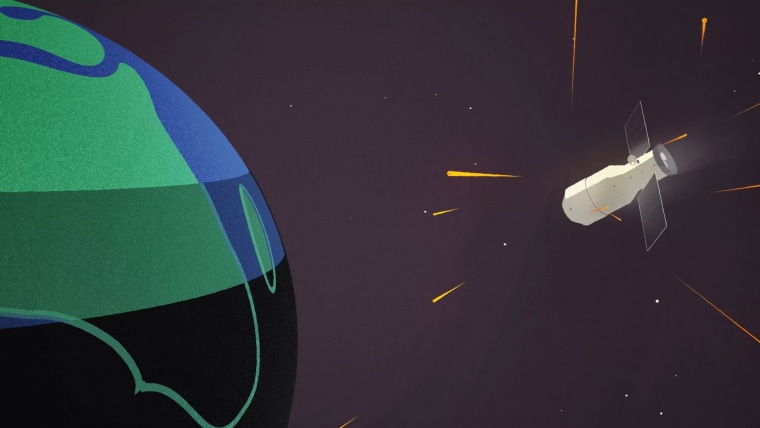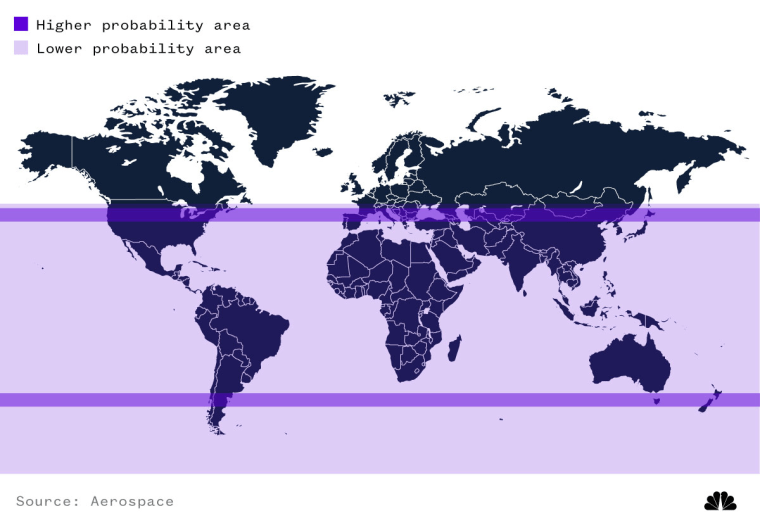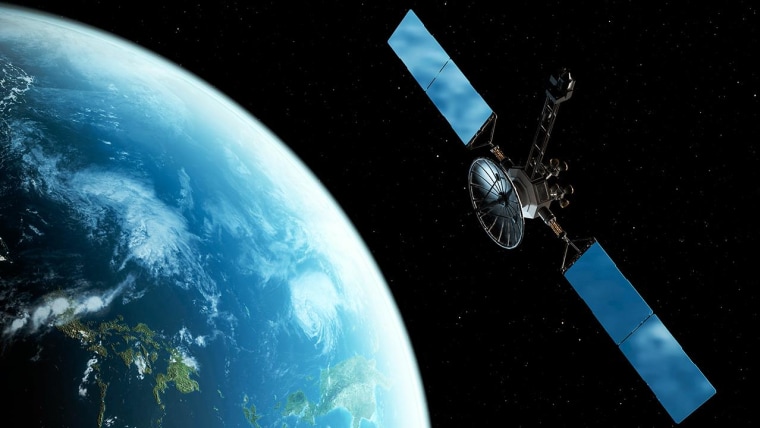
Editor's Note: This story has been updated with the latest estimate for when the space station could fall.
A defunct Chinese space station is expected to plunge to Earth from its orbital perch in early April.
The Tiangong-1 station will mostly burn up as it plummets through Earth’s atmosphere. Some fragments could survive the fiery reentry, but experts say the risk to humans on the ground is small.
“I personally wouldn’t be fearful at all about being struck by space debris,” said Dr. Andrew Abraham, a senior member of the technical staff at the Aerospace Corporation, a federally funded research organization based in El Segundo, California, that has been modeling the 18,000-pound station's reentry path.
An Aerospace analysis found that “the risk that an individual will be hit and injured by a piece of debris is estimated to be less than one in a one trillion.”
“It’s much more common to be hit by lightning,” said Dr. William Ailor, principal engineer for the Center for Orbital and Reentry Debris Studies at Aerospace.
But figuring out exactly where debris from Tiagong-1 could end up is no small task.
“It’s challenging to predict the time of reentry, and even more challenging to get the location,” Abraham said. “One thing we do know is that [Tiangong-1] will reenter between 43 degrees North and 43 degrees South latitude, but beyond that we don’t know the precise location.”

For now, ground stations are able to track Tiangong-1 as it speeds along at 16,000 miles an hour some 180 miles above Earth. But as gravity exerts its inexorable pull and the station’s orbit decays, it becomes hard to predict the station’s position over the planet.
Researchers won’t be able to determine with any reliability the ground track — the path along which debris could fall — until roughly a day or two before the satellite falls, Ailor said.
“Once it starts to break apart, each of the pieces will fall along the track, but they can be spread out by several hundred miles,” he added.
It’s not clear whether China can still control the space station. In a May 2017 update provided to the United Nations, China said Tiangong-1 “ceased functioning” on March 16, 2016 but provided no additional details about the status of the orbiting outpost.
Recently, a top Chinese spaceflight engineer denied that the space station was out of control, Reuters reported. But Ailor challenged that assertion, saying it’s more likely that Tiangong-1 will make an uncontrolled reentry.
(Story continues below chart)
It’s not uncommon for rocket parts, old satellites, and other bits of space debris to fall back to Earth. And if it does fall, Tiangong-1 won’t be the largest structure to plummet back to the planet. That distinction is held by the 268,000-pound Russian Mir space station, which made a controlled descent and splashed down in the Pacific Ocean in March 2001.
To date, only one person — Lottie Williams of Tulsa, Oklahoma — is known to have been hit by space debris. She was struck on the shoulder by a small piece of a rocket’s fuel tank in 1997 while out for a walk.
Tiangong-1, which translates to “Heavenly Palace,” was launched in 2011 but hasn’t hosted any astronauts since 2013.

